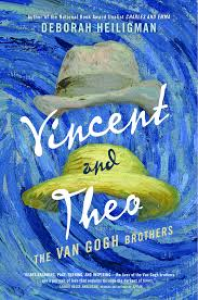
Girl in a Bad Place is another one of those April Henry-esque type books, where it's a suspense/horror written for young, teen girls. A spice of romance, a suspected plot twist. But this one is not as good as April Henry's books. Really, it isn't. April Henry is, for what she writes, a pretty good author. One or two of the books I've read by her have been just bearable, but the rest have been quality enough I could read it again, and The Girl Who Was Supposed to Die is probably my favorite so far. But anyway, this novel by Kaitlin Ward does not live up to Henry's standards.
I first bought this book figuring it was by April Henry. I had just read one of her books, and was willing to spend more money to get another by her, because why not? The novel had been good enough to read again, so trying out another wouldn't be a bad idea. The story of Girl in a Bad Place sounded up my ally, being about a teen and her friends encountering - and communicating regularly with - a cult, and there being something fishy about it. A common horror movie trope, of a supposedly-good-guy-gone-bad and some mysterious things lying around a remote place. It didn't seem too bad. Boy was I wrong.
I read this for a project in school, because the theme was horror, or spooky, or something like that. But anyway, I had to read it in about a week's time. This was such a short read, so it wasn't worth spending a week trying to make a half-decent project out of it. During that time I was able to spend a while thinking over and analyzing the novel itself. One subject that I kept going over was the characters and their development, if there even was any. The characters are dreadful. There is one main character, Mailee, who seems like the perfectly unperfect popular girl, similar to every 90s/00s teen diva. She's lazy, unkempt, controlling, and self-centered. She makes her best-fried, Cara, clean up her room and help her plan things out, doesn't think to at least tidy up when her boyfriend comes over, gets possessive of Cara to the point of fighting with her, and always wastes time and other's patience by putting looks over ability, safety, or sensibility. But, she's pretty, has plans for the future with good grades, and the perfect boyfriend and best-friend. That totally makes up for her negative qualities, right? Then there's Cara, the book's play-thing, who does actually seem perfect. She's clean, sweet, patient, and forgiving. She puts her mind to something and does it, and looks after her friends. She's the victim of the book, truly, as much as the author tries to portray Mailee as the one getting the bad end of the stick. Cara is the one who is blamed for fighting with Mailee over her irresponsibility, and the one who gets dumped by her boyfriend. She is the one who intiates the story by urging Mailee to bring her, her boyfriend, and Mailee's boyfriend to the cult site. She battles with depression and uncertainty of the future throughout the novel, and the author makes it seem like this is a bad thing that isn't appropriate. Cara's true struggles are pushed aside for the story, and it's unfortunate, because her character barely develops. She goes from okay, to joining the cult and feeling better about herself, then pulled back into Mailee's world where she's just okay again. Granted, the cult was somewhat dangerous. Next we have Gavin and Brigit, the two that are obviously meant to be token characters, which is super unfortunate because they are two of the most sensible and well-developed characters, while being super minor. Brigit is a cult member who somewhat knows something is wrong. She helps Mailee, too. Gavin is Mailee's boyfriend, and obviously is annoyed by her. He is the most sensible,telling Mailee and Cara that, the nature is nice and all, but the cult is dangerous and they barely know the people there. He's even one of the first to realize something is wrong with Cara, even though his girlfriend annoys him.
The story itself is fine. It's all fine. The plot, the development, the everything is fine. Overplayed by now, classic horror tropes that aren't even great ones. The writing is okay, basic and bland. The climax is probably the best part, and so is the beginning. The end is nothing special and really is lacking. The author, with this idea, could've written a book that was great. Something creative and a reminder of classic thriller ideals with a modern spin that made a remote cult something darker. But she didn't do that. That's why this book is only two stars. Maybe it would of been better if the main character was more likable or relate-able. Actually, scratch that, it would of been better.
Maybe if you're a somewhat-immature and uncritical 5-8th grader, you'd enjoy it, but I'm in 8th grade and I did not. It's quick, so if you just want to see what it's like or experience a saltine-cracker type enjoyment, then go for it.

 2
2


 2
2













